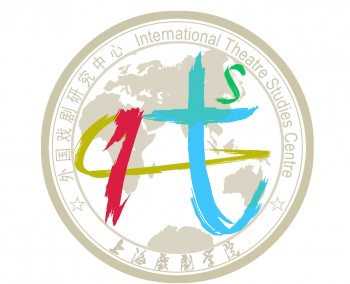

30.11.2016
Gong Baorong
As comparing with the results of the past years, 2016 year has positive dynamics and quite strong impulse of the theatre industry development. It might be caused by different reasons, such as, first, by economic reasons – for the last 30 years we have been observing intense leap of development, although now the industry is quite stable, we still can ascertain the growth of the theatre influence, mainly represented by variety of new theatre collectives. Secondly, the ‘upbringing of theatre public’ effect, the constant theatre audience had appeared in Shanghai and Beijing - basically, this audience was formed by the “white collars”. Thirdly, with the popularization and widespread using of Mandarin Chinese (‘putonghua’ - universal Chinese, based on northern dialects and Beijing dialect), when the sphere of usage dialects almost disappeared, Mandarin Chinese became a language for stage performances, which is a main stream in modern art process. Thereby, the phenomenon of unequal distribution of public attention between Beijing Opera and classical European drama has begun. Despite the fact that Beijing Opera is still the national and cultural heritage of China, demonstrating the brilliant masterpieces of traditional drama school and being a part of the classical theatre program, but the “phenomenon of Zhang Huoding (张火丁)» occurred before (till 2015) unlikely will happen again. As in 2016 we celebrate the 400-anniversary in the memory of Tan Xianzu (汤显祖) – an outstanding theatre master of Ming dynasty reign – the most popular and famous Shanghai theatre dynasties represented significant play “Four dreams of Lin Chuan”, which persists centuries-long dramatic tradition and gives us a “pleasure of spectating”.
As comparing with previous years, the theatre industry of China in 2016 is livelier, busier. First of all, it might be observed in the work of Beijing, Shanghai and Tianjin theatres as the representatives of the theatre process in big cities. For years, they hold the numerous variety of the theatre festivals, for example, Chinese Festival of the Creative Performances in Beijing, Nanluoguxiang Theatre Festival (Beijing), Beijing International Youth Drama Festival, Tianjin Cao Yu Festival, Shanghai International Festival of Arts, Shanghai Festival of Modern Art etc. Of course, it is necessary to note important theatre events in other places, such as Wu-Zhen International Theatre Festival, Shenzhen Biennale of Modern Theatre and others. In parallel with these events, for the memory of 400-anniversary since the death of Shakespeare were held many events. With the growth of performing English and foreign dramas in general, modern directors still can find some amazing plays written by not only foreign authors, but by Chinese classical authors as well. Within the frames of Shanghai Theatre Academy International Festival of Small Theatres was held Shakespeare International Festival, where the theatre collectives from all over the world performed 12 different plays. We’d like to pay attention on “Village” by Israel collective and “Sharper” by German collective.
It is impossible to imagine Chinese modern theatre process without active participation of Taiwanese theatre dynasties. Stan Lai (赖声川), a famous “festival” theatre director, who brought us the term of «Shanghai School of Drama”, and performed many plays on the leading stages of Shanghai, including his famous “Treasure Island”, which is theatre classic now. We can see analogous situation with Meng Jinghui (孟京辉), whose stage performances were commercially successful, for example, “The opinion of two dogs about life” – was performed almost on all main stages of China, and the theatre drama of 2015 “Mermaid from the dead waters”, which demonstrated the first Chinese experience of the “total immersion theatre”. The phenomenon of private theatres became a serious part of the theatre business in China, for instance, Kaixin Mahua (开心麻花) performed in Beijing and Shanghai hundreds of classical and modern plays, among which are “The friend you will always remember”, “Aunt of Li Cha” and others. Within the frames of Russian-Chinese theatre collaboration Bao Li (保利) troupe represented the stage performance “Office romance”, based on the famous Soviet film by Eldar Ryazanov. “Mighty theatre” also became a successful example of national drama popularization – it was impossible to buy tickets (whether in Beijing or Shanghai) on the performance “Beijing Fayuan temple”, directed by Tian Qinxin (田沁鑫). Even this one fact approves that Chinese theatre industry in 2016 was prosperous and bright.
Translated by Lena Lebedeva